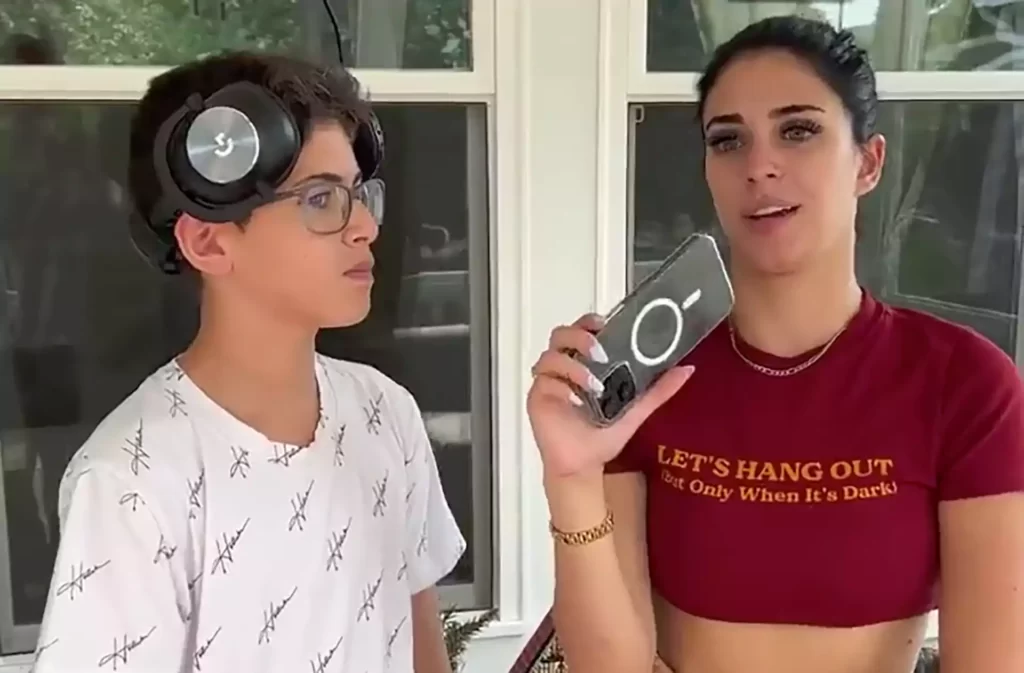Camilla Araujo Leak: Privacy, Security & Aftermath Explained
In a world increasingly defined by digital footprints, is online privacy truly a relic of the past? The unauthorized dissemination of Camilla Araujo's private content serves as a stark reminder that the virtual realm often lacks the safeguards we assume are in place, exposing vulnerabilities that have far-reaching consequences.
The controversy surrounding the Camilla Araujo leaks has sent ripples throughout the internet, igniting critical discussions about digital exploitation, the ethics of content creation, and the responsibilities of platforms. This incident, which involves the unauthorized sharing of private photos and videos of the Brazilian model and social media influencer, has brought to the forefront a complex interplay of technological vulnerabilities, societal attitudes, and the enduring struggle to protect personal autonomy in the digital age. The ramifications extend beyond the immediate violation of privacy, impacting Araujo's career, mental well-being, and the broader landscape of online content creation.
| Category | Details |
|---|---|
| Full Name | Camilla Araujo |
| Birthplace | So Paulo, Brazil |
| Nationality | Brazilian |
| Profession | Social Media Influencer, Digital Creator, Entrepreneur |
| Known For | Engaging content on OnlyFans and social media platforms; entrepreneurial ventures in the digital space |
| Career Highlights | Rising popularity on OnlyFans; significant impact in the online space through engaging content and personality. |
| Controversies | Unauthorized leaks of private content. |
| Current Status | Navigating the aftermath of content leaks and focused on rebuilding her life. |
The unauthorized leak of Camilla Araujo's OnlyFans content swiftly became a focal point of widespread discussion and controversy. Reports indicate that the private content, which was meant for subscribers of her OnlyFans page, was accessed and circulated without her consent. This breach of privacy triggered a wave of reactions, sparking discussions about the security measures employed by platforms like OnlyFans and the broader ethical considerations involved in the creation and distribution of online content.
The incident underscores the importance of proactively safeguarding content and the need for a collective effort to foster a more ethical digital environment. It compels a critical examination of platform responsibility, the legal ramifications of non-consensual content distribution, and the societal attitudes toward consent and privacy in the digital age. The repercussions of such leaks extend beyond the individual, raising questions about the potential impact on mental health, career prospects, and the overall perception of creators who share their lives online.
The impact of the leaks on Araujo's career was undeniable. The unauthorized dissemination of her private content created challenges, tested her resilience, and forced her to navigate a landscape where personal privacy was violated. However, her rising popularity and the support of her audience demonstrate her ability to persevere and continue captivating fans with her engaging content and personality.
The core of the matter involves the unauthorized distribution of private photos and videos, which constitutes a severe violation of personal privacy. This unauthorized sharing can occur through various means, including data breaches, hacking, or the sharing of user credentials. Such acts not only violate the rights of the individuals involved but also undermine the trust that users place in online platforms to protect their data.
The ripple effect of the leaks extends beyond the immediate distress caused to the victim. Leaked content can trigger feelings of anxiety, depression, shame, and embarrassment. Victims may grapple with concerns about the consequences of the leak, including its impact on their personal and professional lives. The emotional toll can be substantial, leading to long-term psychological effects.
The incident has sparked a larger cultural conversation on privacy, consent, and the public's fascination with the private lives of public figures. This situation exemplifies the challenges of maintaining control over one's online image in a digital age where information and media circulate quickly and often without the individual's permission.
The incident, however, also serves as a reminder that even the most private information can be compromised in the digital age, underscoring the importance of being careful about what is shared online. The leak of Camilla Araujo's content on OnlyFans raises several important issues:
- Violation of Privacy: The most fundamental issue is the unauthorized sharing of personal and intimate content without consent.
- Platform Responsibility: The incident raises questions about the security measures employed by OnlyFans and other platforms.
- Impact on Mental Health: Leaked content can have a devastating impact on the victim's mental well-being.
- Legal and Ethical Considerations: The distribution of non-consensual content has serious legal and ethical implications.
- Cultural Attitudes: The incident highlights the complex societal attitudes toward privacy, consent, and the exploitation of individuals in the digital space.
Camilla Araujo's experience offers valuable lessons for creators, platforms, and audiences in the digital age. It serves as a call to action for proactive measures to protect content and to foster a more ethical online environment.
In the wake of the leaks, Araujo is focused on rebuilding her life and addressing the challenges that have arisen. Her resilience and continued popularity demonstrate the support she receives from her audience.
The case draws attention to the challenges of maintaining digital privacy and control over one's online image. With the rapid circulation of information and media, often without permission, the need for stricter protocols and preventative measures is more critical than ever.
Given the nature of the leaks, the discussion must also encompass how creators are to be supported through such situations. This includes providing them with resources, legal assistance, and a platform to voice their concerns. It also involves educating the public about the impact of non-consensual content distribution and promoting a culture of respect and consent.
The emergence of new tools designed to check if a creator's content is part of a leak, such as the "onlyfans lookup tool," is a step in the right direction. While these tools can offer a degree of insight and awareness, they also highlight the ongoing cat-and-mouse game between content creators and those who seek to exploit them.
It is a reminder that we should be careful about what we share online, as it can have unintended consequences. In the face of such digital challenges, the need for legal, ethical, and technical solutions is clear.
Social media was rocked by the recent content leak. The case of Camilla Araujo, like many influencers, underscores the struggles of dealing with leaked material, raising questions about privacy, content security, and the responsibility of platforms such as OnlyFans.
Born and raised in So Paulo, Brazil, Camilla embarked on her journey as a content creator in her early twenties. Her success underscores the power of digital influence and the complexities that come with it.
The incident and its broader implications demand a multi-faceted approach: Technological safeguards need to be enhanced, legal frameworks must be updated to address the nuances of the digital landscape, and societal attitudes toward consent and privacy need to evolve. Only through a concerted effort can we strive toward a digital environment that respects individual rights, protects personal information, and fosters a culture of responsibility.


